 Imagine these two scenarios:
Imagine these two scenarios:
A soldier on the frontlines faces heavy enemy fire. She’s injured and she watches several in her squadron take direct hits. She radios for support.
“We need reinforcements. We’re under heavy fire.”
“Don’t panic, soldier. It’s just the enemy.”
“I’m not panicked. I’m calling for air support and extra troops in this area.”
“Again, soldier. We’ve identified what’s happening. The enemy is aware of your location. You’ve been doing solid work and advancing in that area. Good job. Be encouraged by that.”
“I’m aware of what’s taking place but many of us are wounded. We aren’t confused about who is sending the attack and we’re aware of why it’s come. Still, we could use added support.”
“We’re with you in spirit, soldier.”
Or this one:
Harry was fixing the roof of his neighbor who doesn’t know Jesus, trying to be a living, loving witness, when he fell and now, both legs are broken. He’s been treated for the fractures. Several church friends have arrived to visit.
“How do you feel, Harry?”
“I’m in a lot of pain.”
“Well, don’t you believe your legs are going to heal? That should lighten the pain.”
“Yeah, Harry. Have faith that God still loves you. Doesn’t that take the pain away?”
“We could read you some passages from the Bible about God rewarding those who do good. You believe He’ll reward your good work, don’t you? That should make you feel better.”
“If you had faith, you’d just get right up and start walking again, wouldn’t you? Let’s help you stand up, Harry. It won’t do you any good to focus on the pain.”
“I’m no good with pain, Harry. I don’t have any answer to fix it so I’m going to go home. Call me when you’re better and we’ll get together.”
We can’t imagine these scenarios taking place. But, conversations like this occur every day in the lives of mature, believing Christians experiencing the effects of attacks by a spiritual enemy or grappling with emotional pain from a life event or a wound incurred while demonstrating love to others.
The modern church has little tolerance for problems that don’t fix, chronic situations for which there seems no remedy, ongoing spiritual attack of those in ministry, or believers struggling with unpleasant emotions such as sadness, anger, resentment, depression,  disappointment, or anxiety.
disappointment, or anxiety.
Many of us learn to say the right words, embrace an acceptable mask, and resume normal activities thinking this is God’s plan for us. As if the eleventh commandment was “fake it until you make it, or someone may think less of your testimony.”
Spiritual attack is real. It comes, not because any of us are such spiritual giants, but because if the enemy can’t keep us from a relationship with God, he’s going to switch tactics and attempt to sideline us or sabotage our story.
Identifying the enemy as the probable cause of a situation is only helpful if we then take action.
James, the brother of Jesus, lived in times of great persecution and certainly understood enemy attack. He describes, in James 4:6-10, that we need to humble ourselves during these times – sort of the opposite of putting on masks and acting fine. He tells us to “be wretched and mourn and weep” as we submit ourselves to God and then the devil will flee.
As a community of believers, we can come alongside those who are under attack. Rather than throwing platitudes at them, we pray alongside them. Weep with them. Wrestle with them in fasting and worship. In this way, we provide “air cover” and stand beside them in ministry as reinforcements.
For the lack of this type of community, many fine believers have fallen prey to enemy fire.
And unpleasant emotions arrive in all our lives, even those of us who are mature and of great faith.
We live in a broken world, an outpost of glory, and life is rife with disappointments, sorrows, aggravations, and setbacks. When we open our hearts to love others, they sometimes step on them. We grow weary in the fray.
People annoy us, test us, make demands, and sometimes betray. We lose loved ones to death or face disease, unemployment, children leaving the nest, and other forms of loss or transition. And not one of us was raised by perfect parents so we carry with us generational tendencies that must be worked out, sometimes over time.
When we express emotional pain in Christian community, we’re too often treated Harry with broken legs in the second scenario. Some congregations have a bit longer tolerance than others, but if someone grieves “too long,” or struggles to release anger/resentment/disappointment, wrestles “too long” with depression, or engages in “another” bout of anxiety, we’re quick with quiet, condemning impatience and Scriptural prescriptions really designed to remove us from the feared burden of being long-term supports.
We don’t like feeling ineffective or wrestling with our own questions of why God doesn’t immediately act. It’s easier to blame the sorrowing brother or sister than to engage our own fears.
 Trying to operate too quickly on a broken-heart, is just as counter-productive as trying to walk on broken legs. Many of us know God’s Word, we trust healing will come, and we want to be rid of emotions like anger and anxiety. We all experience them, and we face the temptation to reside in them rather than work through them, but hiding is more likely to lead to residing.
Trying to operate too quickly on a broken-heart, is just as counter-productive as trying to walk on broken legs. Many of us know God’s Word, we trust healing will come, and we want to be rid of emotions like anger and anxiety. We all experience them, and we face the temptation to reside in them rather than work through them, but hiding is more likely to lead to residing.
When we hide, the enemy seizes the opportunity to whisper that we’re alone. No one in the Body of Christ needs be alone. Those whispers are a lie designed to keep us from walking into the light.
Again, the Bible demonstrates, especially in the Psalms (like 6, 10, or 42) that God isn’t repelled by our strong negative emotions. If they lead us into sin, there’s something to address, but that’s more likely to happen if we huddle in the dark. To acknowledge them, give voice to them, and turn to God for help with them is key.
God designed us with an emotional array and our feelings are being redeemed along with our souls and minds. Sometimes, that isn’t pretty or convenient. Often it means hard spiritual and relational work. But on the other side of that process, we grow and light pathways others can follow when they fall down the same well.
Taking a long view of discipleship and a deeper view of Christian community and fellowship, we can partner with  brothers and sisters in healing by welcoming them to express life as it happens, listening with compassion, validating the power of those emotions, and administering appropriate encouragement and exhortation with the same patience we’d offer Harry and his broken bones.
brothers and sisters in healing by welcoming them to express life as it happens, listening with compassion, validating the power of those emotions, and administering appropriate encouragement and exhortation with the same patience we’d offer Harry and his broken bones.
There is pain along the pathway to healing. Just as Harry would benefit from the right medicine, so we can be that medicine for fellow Christians if we drop our fear of discomfort and hard questions long enough to be present in the name of Christ.
Let’s start here. I’m in pain, walking these days with an “emotional limp.” How about you?
Why Christians Hide Emotional Pain (and why we have to stop) https://t.co/mihJymMtWp #amwriting #JesusChrist #church
— Lori Roeleveld (@lorisroeleveld) June 25, 2019
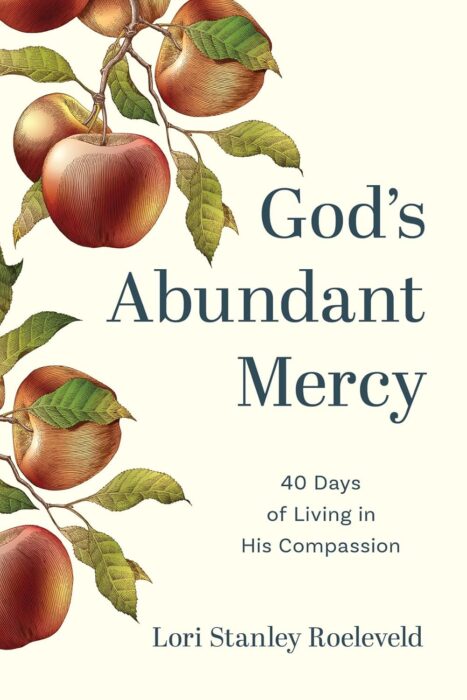
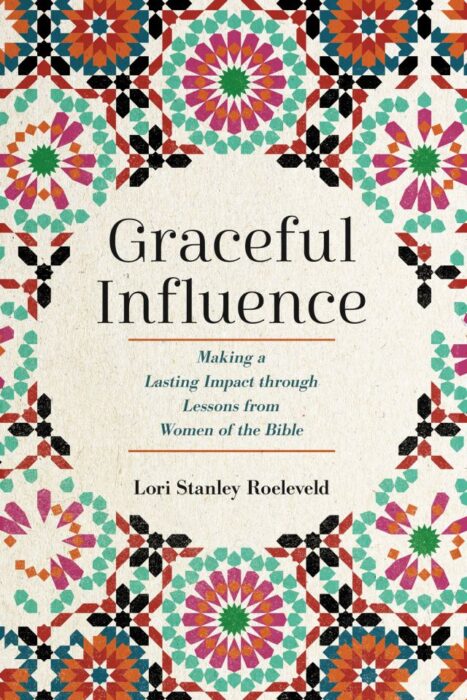
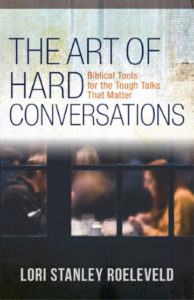
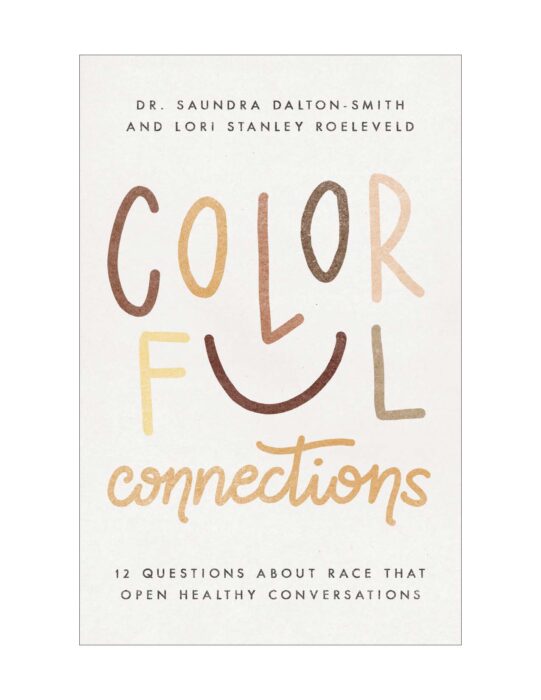

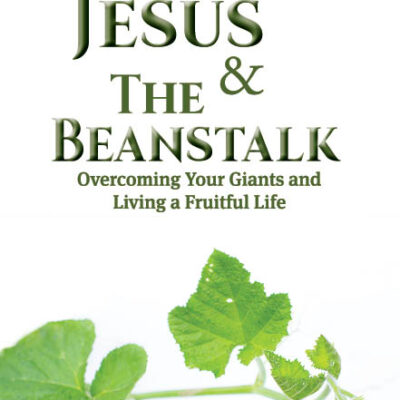

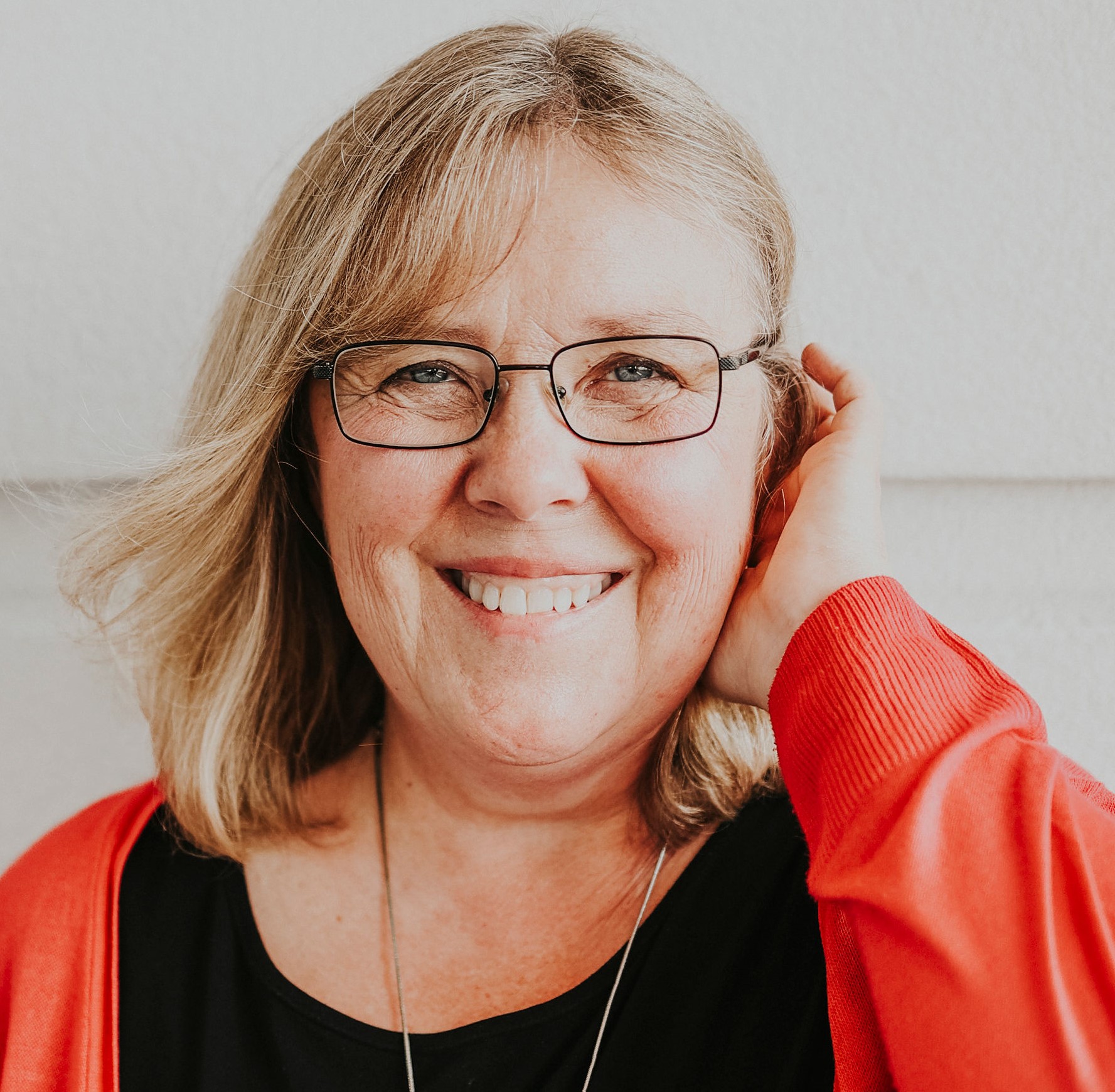



The Conversation
I’ve had severe clinical depression for decades. I’ve planned my suicide several times, only to change my mind at the last moment. Usually, I discover someone was praying for me at that exact time — without knowing what was happening.
I can’t count the times I’ve been told since I’m a Christian I have no reason/excuse to be depressed. As if my physical body is different than a non-Christian’s body. These admonitions came from fellow church members, even leaders. I’ve seen pastors who nicely pour Scriptures over me knowing their helpful advice would cure all my problems. Never. I always come away more despondent than when I arrived for the appointment. Secular counselors are way worse.
You name the medication, I’ve taken it. The only treatment to significantly improve my condition was Transcranial Magnetic Stimulation (TMS). It literally saved my life! However, that’s been years ago. I don’t have health insurance. My salary is in the poverty level so I can’t afford to see a physician or get the prescriptions filled.
The circumstances of my life continue to deteriorate. Only a very few are aware of my true feelings. I’m happy, upbeat, enthusiastic, joyful, keep people rolling with laughter every second I’m “in public.” Because that’s what is expected. Too many times have I seen a fellow church member be avoided/ignored when his/her “troubles” were deemed to last too long. Being one of the few who prayed with these hurting people wasn’t enough to prevent every one of them from leaving the church because they knew they weren’t wanted. I don’t want that to happen to me.
I struggle every day to make it minute-to-minute. Maybe someday God will answer my prayers for healing. Maybe He won’t. One day will be my last. Then I will be free to sit at the feet of Yeshua Messiah forever.
Thank you for letting me share!!
And Thank you for your PHENOMENAL WORDS!!!
Thank you for the courage to share a piece of your story here, Jann. It’s easy to become defined by our biggest problems but you are more than your struggle with depression and God sees the whole picture. I pray there are other believers in your world who do, too. God bless those who surround you with prayer and speak truth into your life. Thank you for speaking truth into this conversation.
I’m so sorry!! It looked like my post hadn’t gone through! It won’t let me delete this second comment! Yikes!!
I’ll delete it. No worries.
So timely. Thank you, Lori, for another eye opening blog article. You highlight such important points. I am so grateful to the Lord for sending the encouragers to my husband and I as we walked through hell last year. Those few encouragers sat, listened, prayed, encouraged and wept with us. They let us be real with our emotions and it helped. We hope to come alongside others in ministry when they need encouragers who are willing to go through the emotional wars with them.
Thank you Laurie – I have been grieving the loss of my husband of 43 years, and folks seem to think I should be over it – as a result I have ‘stuffed’ the grief, got busy, and suffered burnout…
Blessings
Maxine
Lori, I so seldom atop and tell you how much your words mean to me and, I’m sure others. I thank God for you and your boldness to speak truth and love. I pray for your “limp” and my “limp” and the “limp” of others. Can’t wait to meet you in heaven!
So the soldier needed air support and extra troops with her on the ground. Harry needed others to go finish the neighbor’s roof, and meet his physical needs while his legs healed.
Oh, may we do a better job at meeting needs instead of only offering words and expectations.
We could be the ones to help change how the church responds to emotional pain.
And, may we do a better job of letting others know we are hurting! Hopefully many will read Lori’s words and understand. I wonder how we would be perceived if we all took off our “everything is fine” masks? I’m limping along, too – God is with me for the long haul.
Father, help me to be there for others with an encouraging word, not one that condemns. Help me usher others into Your presence where they can find hope and healing in Your timing and in Your way. Help me to love others as You love me. Help me always to trust that You know what is best. James 1:2-4.
Amen. Thank you, Deb.
Oh my goodness this is right on. As a pastors wife I see this all the time. It is heartbreaking to say the least. I think people are afraid of being rejected if they open up. God help us.
Someone very close has been hiding behind a “tougher-than-nails” face for most of a lifetime. It’s heartbreaking to watch and I feel totally inept at convincing a broken spirit to do otherwise. I feel I’ve been hampering God’s work in this person and need to step back and simply pray. That does, however, feel like I’m abandoning someone in need.
It’s like you wrote this article for me. I am not good to articulate. I am going through a really bad period in my life right now with having had to put my husband in Long Term Care with Dementia and my 17 year old grand-daughter announcing she is gay. Because of my
beliefs and trying to convince her and her family of the Bible and what it says about homosexuality I have been outcast from my grandchildren and the parents for not accepting this. This was a young woman who up to last August was a counsellor at a Bible Camp. I have been crying since. Thank you for this article. I love my grandchildren with all my heart and will not stop praying for them. I will never stop praying just like the father in the Prodigal Son did waiting for his son to return. Lori you are so gifted.
Lori, thank you for this most honest and revealing truth. We surround people with love and care when they suffer from physical illness, but we are, I think, afraid of mental/emotional issues. We have not been equipped to understand them, and if we have not experienced them ourselves, we tend to think there is something missing in other people. I am still persevering through the loss of my husband of 38 years (18 months caring for him, then his death). It will be two years in August since he went home. One of the most tragic things that happened (or rather, did not happen for me) after his death was that my minister, who had faithfully visited during his illness, never visited or said another word to me after his death. That was crushing. If we truly want to be a “family of God,” we have to get in there with the ugly and learn to listen to others’ journeys of struggle – but we stand apart instead, adding more pain and ache to people for whom we could be a salve. Bless you for bringing to light the “hard stuff!”
I’m also a depression sufferer, and I deal with OCD that manifests itself, among other ways, in scrupulosity, which is an overconcern with all things religious. A CNN article describes it as a “constant fear of going to hell”. It does not matter that I was baptized in 1981, and that I became a Christian then, there is the fear I battle of “oh, if I did this the wrong way, God will punish me.” I had a doctor up a dose of an antidepressant I’m on, and that has seemed to help.
I have a young adult son with autism, and I fear for his future when his dad and I are gone. Yes, I have a wonderful, accepting church family, but will they be there for him when his dad and I can’t be there? And how do you ask the question, “Will you care for my son when we’re gone?”
I fear that the “safety net” our government has established will not be there for my son when he needs it. Resources are scarce and waiting lists are YEARS long. And an attempt I made to get training for a job backfired, and I’m now paying back student loans. We also have structural repairs to make on our house.
I am afraid for the future of our country. I am disheartened by the bickering and fighting that goes on even among Christians. In the 2008 election, I expressed my fear to a group of Christians and was immediately told, “God is in control.” My thought was, ‘of course you can say, ‘God is in control’ because your candidate is going to win!” That was the moment that “God is in control” became my number 1 “Christianese phrase that drives me crazy”, and if you value your life, you will not use it with me.
I sometimes wonder if everything i believe is wrong. Telling me to read the Bible doesn’t really help, because apparently, I can’t just open an English language Bible, read it, and apply it. I have to worry about, “Hebrew, Greek, Aramaic, context, original audience, original intent, culture of the times, patriarchy, translations/translators with agendas” and the resulting arguments just leave me too mentally exhausted to even try anymore. I have understood for years. that “sexual immorality”” meant “the only person you have sex with is a person of the opposite gender that you are married to” and that any other sexual behavior is a sin.. But apparently, I am wrong, according to some . . . And on every single issue out there, every single person can prove they are right with Scripture. No matter whether it’s gender roles, sexual behavior, even the definition of “love”. These days, “love”” is defined as, ‘You do not tell me that my behavior is sinful, because if you do, you’re not being “loving”.
And I am truly tired of the expectations on women being, either get a job in the STEM professions (because how DARE you squander the opportunities that women have fought for over the years!) or, for Christian women, “We”ll. accept that MAYBE some of you have to work,, but your REAL role in life is to be wives and mothers, have as many children as you can, homeschool them all, and run your household like the Proverbs 31 woman WITHOUT going to work outside the home!”
I also have chronic health issues of my own. Selfishly, I worry, if my husband dies before I do, who is going to take care of me if I become incapacitated, because my son won’t be able to!
Although I sometimes think that I should just trust God and everything will be OK; I trust God, and everything is NOT okay!
Lori,
Your posts so often find me where I am, but this one. Wow! For years I’ve dealt with anxiety and panic disorder. I’m on medication that keeps me “even” most of the time. Lately my panic attacks have become more frequent due to job stresses and another ongoing health issue. It’s hard to find someone who can or wants to take the time to understand. There is a sense of guilt that I often feel when I try to share my stuff with others. Almost as if I am a poor reflection of God because I continue to struggle. I smile and tell folks I’m fine. But I try to reach out to others I see who need a heart and hand. I believe I have this issue so that I can be present for others who face the same challenges.
Right on target. You tell it like it is. Thank you.
SO GOOD LORI. What you describe is community at its greatest effectiveness. It’s an investment in the person, commitment to seeing them through, walking with them on their journey. I don’t know why the church is so flawed in that regard. Maybe fear for the vulnerability it would require? Busyness and life’s pressures get in the way? Even the good things can crowd out relationship. Thank you for this post. I love it with all my heart. And I will pass it on to my own community, which is committed to this kind of love. But we have a ways to go. This morning, our progress will start with me. Thanks for the inspiration.
I so needed to hear this today, thank you. You’ve explained why some bad stuff is happening to my loved ones. I will try not to hide my pain over this any longer. I will dive in head first to my new community of believers. God bless you.
Thank you Lori for sharing these insights. Blessings
Amen, Lori.
How am I doing? It’s a miracle I can even function, I’m in so much emotional pain. But I am functioning, and I keep going. Because I have to. Because I’m being carried in God’s arms. Everything in me wants to lay down and give up. I’m so dang tired. But I just keep going in spite of the pain.
It’s crazy.
The number one emotion that Christians and non – Christians ignore is dimensions of anger.
Agreed.